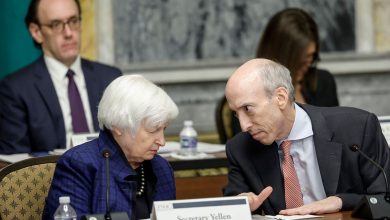At 55 years old, I will have worked for 30 years — what are the pros and cons of retiring at that age?

[ad_1]
Dear MarketWatch,
I currently own one home, no mortgage with rental income. I own another home that will be paid off the year I turn 55. Both valued at $750,000. I have a 401(k) and other stocks and investments totaling another $750,000. My debt will be all paid by the year I turn 55.
I have been on my job for 27 years. It will be 30 years when I’m 55. What are the disadvantages and advantages of not working after 55 years of age?
Dear reader,
It is completely understandable that you would want to retire after working for 30 years, especially when you have rental income, but I would caution you to take this decision very seriously and find a few backup plans.
One big pro of waiting until 55 is the fact that you get to withdraw from your current 401(k) at that age. It’s called the Rule of 55, and not everyone knows about it. Usually, savers have to wait until they’re 59 ½ years old in order to take distributions from their retirement accounts, such as 401(k) plans and IRAs. An early distribution incurs a 10% penalty, plus taxes.
The Rule of 55 gives workers a break if they want to tap into their 401(k) and have separated from their current job for any reason.
But you probably don’t want to tap into that 401(k) — or at least, you shouldn’t want to do that.
If you stop working at 55, you’re halting a major source of income. Rental property is great, and having no mortgage over your head is a huge plus, but will it be enough to cover your everyday expenses and the unexpected for decades to come? Retirement isn’t what it used to be — people are living longer, which means every dollar you have for retirement needs to last until you die. If you retire at 55, you could potentially be in retirement for 30 years — or more. Do you think your nest egg and any other sources of income, like Social Security and rental income, could cover you for that long?
Some people would say $750,000 in a retirement account is more than enough, but others would argue it is not. Of course, it also depends on what your annual expenses are, what future spending could look like if you were to fall ill or need to change something from your current lifestyle. And do you have any other money set aside for various circumstances, like repairs on either of your homes?
You could look to see what other sources of income may look like (for example, what can you expect from Social Security?) but you should still find a few backup plans for income so that you’re not sweating it out later in life. Not to be a Debbie Downer, but rental income may not be enough to make ends meet or keep you from distributing too much from your retirement accounts. Also, do you have money set aside to offset your costs if your property is vacant for a little while?
Check out MarketWatch’s column “Retirement Hacks” for actionable pieces of advice for your own retirement savings journey
Also, don’t forget about healthcare. If you’re not married to a spouse who has health insurance through an employer, what would you do? Medicare eligibility starts at age 65, which means you would need your own health insurance for an entire decade, and that can be quite expensive.
Instead of retiring fully, is there another job you may be happier working? Or some type of part-time gig you could take on? A huge bonus would be if this job comes with health benefits, as well as another retirement account you could keep putting money into until you’re ready to fully retire.
I know this may not have been the answer you wanted to hear, but it’s absolutely worth considering every possible good and bad thing that could come out of retiring early. But as with everything else in life, you need to strike a balance — finding work you can do that brings in an income, while also enjoying your life now. It’s not easy, but it’s worth it to plan this out a bit more before you celebrate the big 55.
Readers: Do you have suggestions for this reader? Add them in the comments below.
Have a question about your own retirement savings? Email us at HelpMeRetire@marketwatch.com
[ad_2]
Source link



